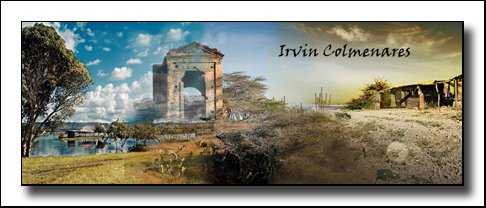
Saludos. El amigo @emiliorios en su excelente artículo para la comunidad de @holos-lotus nos deja la invitación a compartir nuestra opinión sobre la conveniencia de callar. Les comento…
El tema en cuestión ha estado rondando la mente humana desde que las personas tomaron conciencia que las palabras podían ser armas poderosas.
Cuenta la leyenda que ya en la antigüedad Griega, un filósofo renombrado como Sócrates hacía un llamado a ser prudente a la hora de hablar y, sobre todo, en el momento de emitir opiniones que pudieran afectar a los otros. En internet puede conseguirse fácilmente información sobre los llamados “tres filtros de Sócrates”, una fórmula sencilla que si la ponemos en práctica antes de expresarnos seguramente nos evitará muchos inconvenientes.
Con relación a este tema recuerdo claramente, aunque haya pasado muchísimo tiempo de eso, cuando en una conversación con un amigo, en la que yo le manifestaba mi pesar por haber dicho algo fuera de lugar hacia una persona muy apreciada, él me respondió que ya el mal estaba hecho, que buscara la manera de pedir un perdón sincero sin poner muchas expectativas en el resultado, porque una vez que se han lanzado las palabras al viento, una vez que han sensibilizado el ánimo de la otra persona ya no hay manera de recoger esas palabras, ni de revertir el efecto causado…
Aquella conversación significó para mí un punto de inflexión. Hasta ese día no había pensado seriamente sobre el efecto que tiene todo lo que decimos.

De alguna manera yo he sido formado en una cultura donde se suelen soltar las palabras de manera ligera, como si fuesen algo intrascendente, como si luego de cada ofensa o palabra lesiva que se dirija a alguien se pudiera hacer borrón y cuenta nueva, y se pudiera poner la situación en el mismo punto en que estaba antes de que se hubiesen dicho esas palabras ofensivas.
Pero no, no es así. Lamentablemente esas ofensas que se lanzan a los demás dejan rastros, pequeñas o grandes huellas que hacen que las cosas comiencen a verse de otro color, con otro tono, con otro ánimo…
Creo que la mayoría de las veces hablamos sin tomar en cuenta que todo lo dicho produce algún efecto y que estos efectos pueden ser duraderos. Cada día me impresiono de cómo los adultos se siguen dirigiendo a los niños con palabras que lesionan su dignidad como personas y que tienen efectos en la estima que estos niños van construyendo para andar por la vida.
Emilio en su escrito nos pregunta si lo mejor será callar. Creo que sobre este punto no hay una única respuesta. Ciertamente que si callamos nos evitamos el riesgo de decir cosas inconvenientes, comprometedoras. Pero esto también lo pudiéramos lograr si entrenamos nuestro comportamiento para ser menos impulsivos a la hora de expresarnos.

Si lográramos reflexionar sobre el peso de las palabras que nos han llegado a la mente, si pensáramos algunos segundos sobre el posible efecto que estas pudieran dejar en el interlocutor, es bastante probable que las pudiéramos frenar a tiempo y encontráramos la manera de cambiarlas por otras que tocaran los oídos sin producir ningún daño…
Claro, hay momentos en que el callar nos puede situar en una encrucijada ética. Esto ocurre sobre todo en contextos más amplios, como son los de la vida social. Hay momentos en la vida en que el silencio se convierte en un acto que más allá de nuestra opción personal, valida actos de injusticia y atropello a los demás.
¿Ante una palabra utilizada desde el poder para sembrar la manipulación y la mentira habrá que anteponer otra para iluminar la verdad…? Es un tema que solo tiene respuesta dependiendo de los horizontes éticos de cada quien…
Gracias por tu tiempo.


Greetings. The friend @emiliorios in his excellent article for the @holos-lotus community leaves us the invitation to share our opinion on the convenience of keeping quiet. Let me tell you...
The subject in question has been haunting the human mind ever since people became aware that words could be powerful weapons.
Legend has it that already in Greek antiquity, a renowned philosopher such as Socrates called for prudence when speaking and, above all, when expressing opinions that could affect others. On the Internet you can easily find information about the so-called "three filters of Socrates", a simple formula that if we put it into practice before expressing ourselves will surely avoid many inconveniences.
In relation to this subject I remember clearly, although it has been a long time since then, when in a conversation with a friend, in which I expressed my regret for having said something out of place towards a very appreciated person, he answered me that the evil was already done, to look for a way to ask for a sincere forgiveness without putting many expectations in the result, because once the words have been thrown to the wind, once they have sensitized the mood of the other person there is no way to pick up those words, nor to reverse the effect caused...
That conversation was a turning point for me. Until that day I had not seriously thought about the effect that everything we say has.

Somehow I have been brought up in a culture where words are usually thrown around lightly, as if they were something unimportant, as if after every offense or hurtful word directed at someone you could wipe the slate clean and put the situation back to the same point it was at before those offensive words were said.
But no, that is not the case. Unfortunately, those offenses that are thrown at others leave traces, small or big traces that make things start to be seen in a different color, with another tone, with another mood...
I believe that most of the time we speak without taking into account that everything we say produces some effect and that these effects can be long lasting. Every day I am impressed by how adults continue to address children with words that injure their dignity as persons and that have effects on the esteem that these children are building to walk through life.
Emilio in his writing asks us if the best thing to do is to remain silent. I believe that on this point there is no single answer. Certainly, if we keep quiet we avoid the risk of saying inconvenient, compromising things. But we could also achieve this if we train our behavior to be less impulsive when expressing ourselves.
If we could reflect on the weight of the words that have come to our mind, if we could think for a few seconds about the possible effect they could have on the interlocutor, it is quite likely that we could stop them in time and find a way to change them for others that would touch our ears without causing any harm...

Of course, there are times when silence can place us at an ethical crossroads. This happens especially in broader contexts, such as those of social life. There are moments in life in which silence becomes an act that, beyond our personal choice, validates acts of injustice and abuse of others.
In the face of a word used from the power to sow manipulation and lies, should another word be used to illuminate the truth...? It is an issue that only has an answer depending on the ethical horizons of each one...
Thank you for your time.
Translated with DeepL.com (free version).








Comunidad Be Entrepreneur
